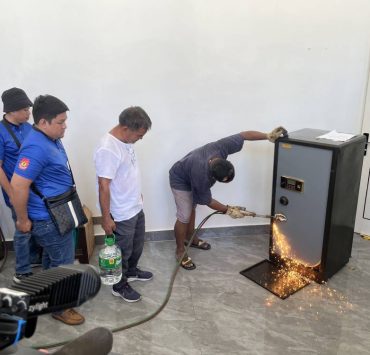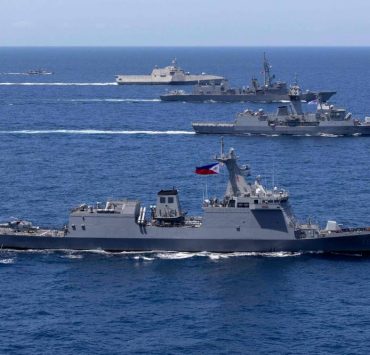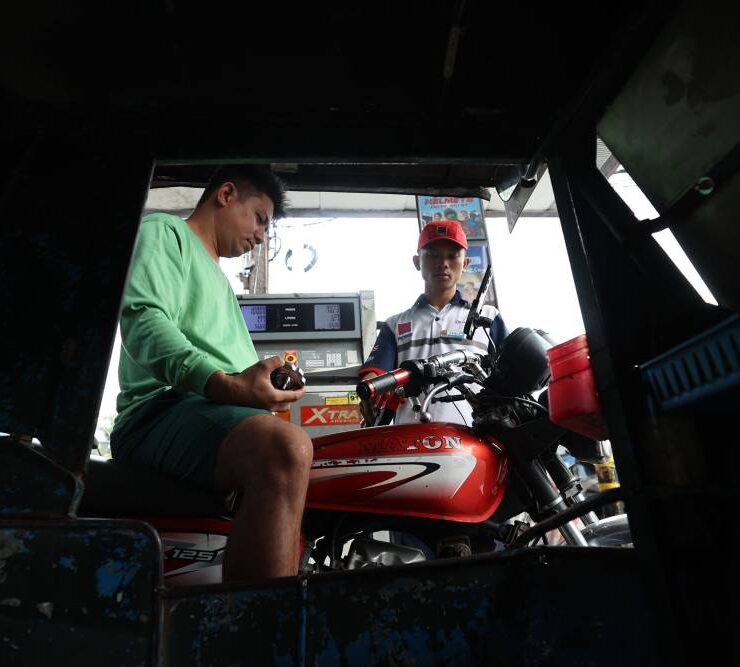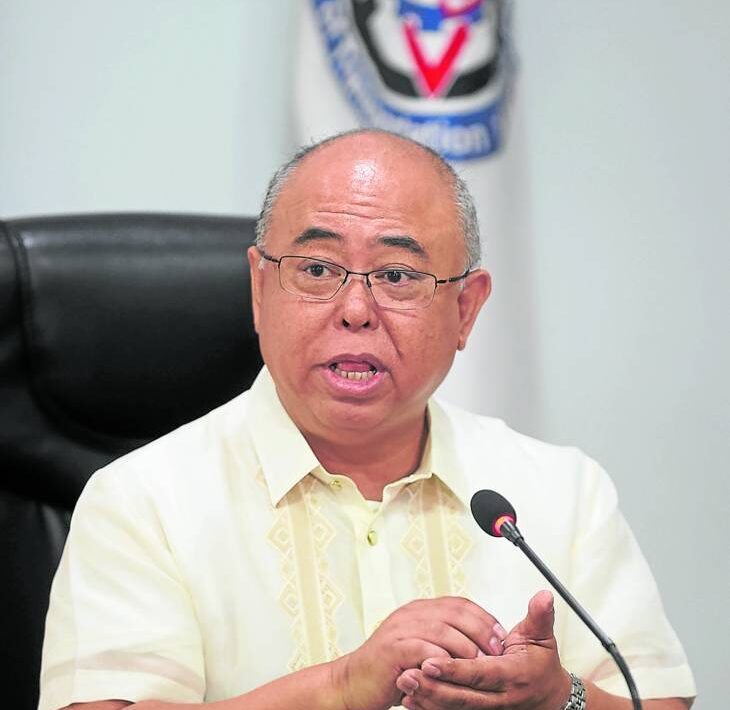‘Horrified’ Marcos summons Sino envoy over ‘secret pact’

MANILA, Philippines — President Ferdinand Marcos JR. said he was “horrified” that the country’s sovereign rights in the West Philippine Sea might have been compromised by the so-called gentleman’s agreement between former President Rodrigo Duterte and China, prompting him to summon Beijing’s ambassador to demand an explanation.
Addressing for the first time former Duterte spokesperson Harry Roque’s claims regarding the “secret” verbal pact, Marcos said on Wednesday he had not been briefed on such a deal when he assumed office in 2022, nor was he shown any written record of it.
“We don’t know what that agreement really is. But if that agreement says we need to get permission from another country to move in our own territory, it might be difficult to follow that kind of agreement,” the President said in an interview with reporters in San Juan City.
Marcos went on: “I am horrified by the idea that we have compromised through a secret agreement the territory and the sovereign rights of the Filipinos.”
Huang in Beijing
He said he sought a meeting with Chinese Ambassador to Manila Huang Xilian to confirm whether such an agreement existed and to have him explain the terms if it did, including the parties involved.
“We still have to clear it up. We are still waiting for Ambassador Huang to come back from Beijing. I asked to see him. Maybe when he comes back, he can explain it. Who were talking, what was discussed and agreed upon. Was this an official thing or was it a personal thing?” Marcos said.
“There is no record of it, no matter where you look for it… It was all done in secret. Why did they do it? And why did they have to keep it a secret? It’s baffling. It’s not a good situation,” he said.
The Chief Executive was reacting to Roque’s statements on March 27 about the pact Duterte had supposedly entered into with China regarding the conduct of Philippine resupply missions to Ayungin (Second Thomas) Shoal and the movement of Filipino fishermen in Panatag (Scarborough) Shoal.
Under the purported deal as described by Roque, Manila agreed to restrict its delivery of supplies during rotation and resupply (Rore) trips to the BRP Sierra Madre, a grounded warship that serves as a Philippine outpost in Ayungin, to only food and water, with no building materials allowed.
The agreement also supposedly banned the Philippine Coast Guard from accompanying local fisherfolk in Panatag in exchange for granting the Filipinos access to their traditional fishing grounds.
Both Ayungin and Panatag lie within the Philippines’ 370-kilometer exclusive economic zone (EEZ), or waters in the South China Sea which Manila calls the West Philippine Sea.
China Coast Guard (CCG) and Chinese maritime militia vessels have been obstructing the Rore missions through water cannon attacks, blocking maneuvers, and other harassment tactics, which Beijing claims are warranted as it accuses the Philippines of trying to bring in construction materials to reinforce the rusting and dilapidated Sierra Madre.
The last time Manila summoned an official from the Chinese Embassy was on March 25 when the Department of Foreign Affairs conveyed its “strong protest” to charge d’affaires Zhou Zhiyong against the actions of Chinese vessels two days earlier, including a water cannon attack by the CCG that damaged a Philippine supply boat and hurt three crew members.
No straight answer
Asked if he planned to raise the matter with his predecessor, Mr. Marcos said government officials were already in talks with those who served under the Duterte administration.
“We’re asking them, what is this all about? Explain it to us so we will know what to do. We still haven’t got a straight answer,” he said.
Mr. Marcos said some former officials denied there was a deal, while others claimed the opposite, insisting that the country should honor its end of the bargain.
Former chief presidential legal counsel Salvador Panelo said on Wednesday “no such agreement was made” between Duterte and Chinese President Xi Jinping.
In a statement, Panelo said three members of Duterte’s Cabinet—former Executive Secretary Salvador Medialdea, former Defense Secretary Delfin Lorenzana and former Interior Secretary Eduardo Año—had separately issued denials.
A chronic aggressor
Duterte “has never and would never enter into any agreement that is against our national interest, sovereignty and territorial integrity,” he said.
At the House of Representatives, opposition lawmakers urged the President to stand firm against any deal struck by his predecessor, arguing it would have no binding effect on the incumbent government anyway.
In separate statements, Albay Rep. Edcel Lagman and ACT Teachers Rep. France Castro agreed with Mr. Marcos that there was no way to fulfill the agreement without violating the Philippines’ rights.
“There can be no gentleman’s agreement with a chronic aggressor like China in the West Philippine Sea,” Lagman said.
Castro urged the President to “ask his supporters in Congress to investigate the matter and hold the ones responsible accountable to the people.”
Chinese ships near Pag-asa
Also on Wednesday, the Armed Forces of the Philippines said Chinese vessels, including a warship, were again detected swarming areas in the West Philippine Sea, following the first-ever joint naval patrols on Sunday between the Philippines and three key allies, the United States, Japan and Australia.
Col. Francel Margareth Padilla, the AFP spokesperson, told reporters that the military spotted a Chinese warship, a CCG vessel, and four Chinese maritime militia ships in the vicinity of the Philippine-occupied Pag-asa Island as of 5 p.m. on April 9.
Padilla said four CCG vessels and 20 Chinese maritime militia ships were present at Panatag, which was seized by Beijing in 2012 after a standoff with the Philippine Navy. The shoal is located some 220 km west of Zambales province,
A CCG vessel and four Chinese militia ships were also sighted in Ayungin, while three other militia ships were seen at Panata Island in the Kalayaan Island Group, or the Spratly chain.
Padilla said the Philippines would not be deterred in conducting its resupply missions to its outposts in the disputed waters despite the crowding of Chinese vessels.
Beijing claims almost the entire South China Sea. In 2016, an arbitral tribunal in The Hague, the Netherlands, invalidated its sweeping claims and upheld the Philippines’ sovereign right to fish and exploit resources within its EEZ, a decision China does not recognize. —WITH REPORTS FROM KRIXIA SUBINGSUBING AND NESTOR CORRALES




















